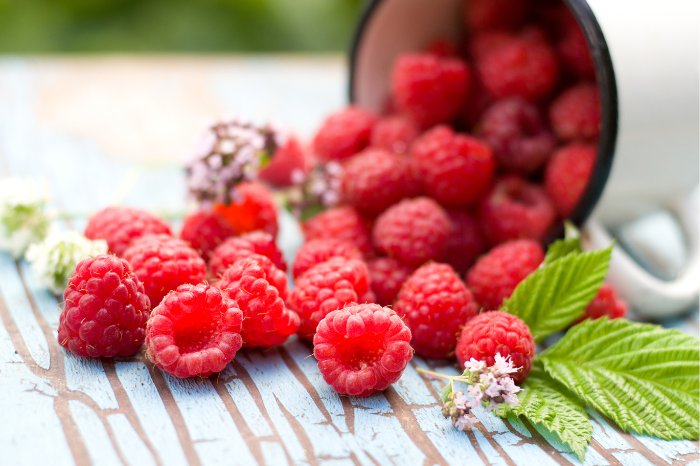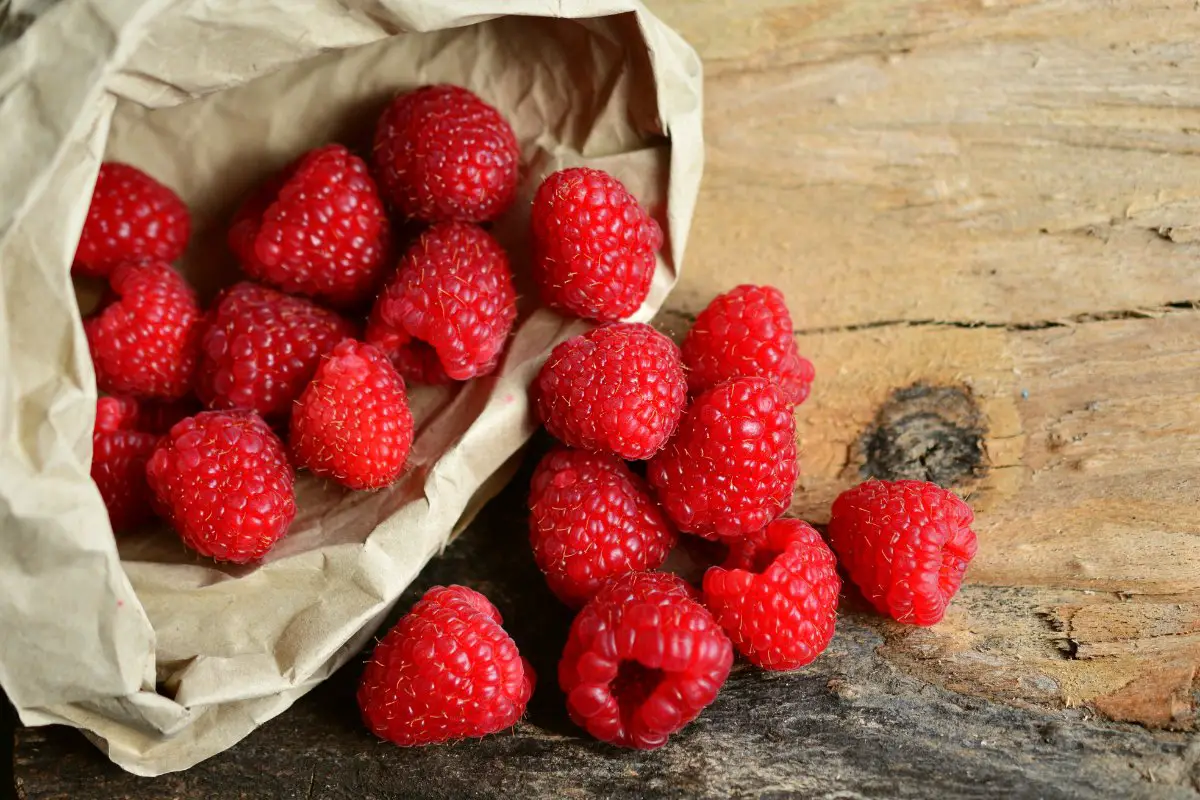Last Updated on February 10, 2023
Today, we’re going to be taking a look at how to tell if raspberries are bad and what to do with raspberries if you expect they’re starting to go bad. Raspberries are one of the most popular fruits around the world, and it’s not difficult to see why. They work well in breakfasts, in desserts and even as a snack. But like all food, raspberries go bad. Depending on how you’re storing them, they may go bad quicker than they usually would. But how to tell if raspberries are bad? We’re here to help. Let’s take a closer look.
What Are Raspberries?
You’ll likely already know what a raspberry is, but let’s take a closer look. Raspberries come from a perennial plant and they are the fruit of a plant that comes from the rose family. Unlike most other berries, when raspberries are picked, the core stays on the plant; this means that the core is hollow. While raspberries are cultivated across the globe, Russia produces the highest amount of raspberries, coming in with 20% of the world’s total.
Raspberries can be sold fresh, or also as dried, or frozen too. They’re most often used in foods such as pies, purees, smoothies and juices. You can find raspberries in just about any grocery store.

Take Out Time to Also Read:
- Can You Add Food Coloring To Candy Melts? Know-How
- How Much Salt is in a Stick of Butter? A Salty Secret
Nutritional Information of Raspberries
You may be curious as to the nutritional value when it comes to raspberries. A cup of raspberries contains the following:
- Calories: 65
- Fat: 0.8g
- Sodium: 1.2mg
- Potassium: 186mg
- Carbohydrates: 15g
- Dietary Fiber: 8g
- Sugar: 5g
- Protein: 1.5g
Health Benefits of Raspberries
When it comes to raspberries, there are many benefits to adding them to your diet. Some of the most common health benefits include:
- helps to normalize blood sugar
- helps to boost your immune system
- high in antioxidants
- can help to prevent cancer
- maintains a healthy heart
- an anti-inflammatory
How to Tell if Raspberries Are Bad?
When it comes to assessing whether raspberries are bad, there are a few tell-tale signs to look out for. Here are the 4 easiest ways:
- Smell. When raspberries are rotting, they will not smell fresh and sweet, like raspberries typically do. The smell test is a quick easy way to test if raspberries are still okay to eat
- Mushiness. As raspberries start to turn bad, they become mushier and mushier. If they practically fall apart in your hands – do not eat them. However, if they’re just slightly mushy, they’ll still be okay to use in jams and jellies.
- Color. If there are any spots on the raspberries that are white, or another color that isn’t typical for a raspberry – it’s time to get rid of them!
- Mold. Mold is the easiest sign to tell if your raspberries are bad. Do not eat any raspberries that have mold, or have been in the same container as raspberries that have mold.
Komax Daykips Berry Containers for Fridge | (Set of 3)
It’s also worth noting that if you notice any insects or bruised berries, it’s best to discard the fruit entirely to be safe.
What Do Bad Raspberries Look Like?
Bad raspberries can manifest in a few ways. They’ll typically look soft and mushy in texture. If they’re particularly far gone, they’ll likely fall apart in your hands. As well as this, they may also be showing signs of mold, and well as discoloring from their typical deep red color. If your raspberries show any signs like these, it’s best to discard the fruit and replace with fresh raspberries.
How Long Are Raspberries Good For?
The answer to this depends on how and where they are stored. For example, if you leave raspberries out on the counter, they will not last more than a few hours at room temperature. However, if you keep them sealed in the refrigerator, they’re likely to last around 2-3 days. If you’re unsure whether raspberries are safe to eat, just look out for the tell-tale signs listed above.
Are Mushy Raspberries Safe to Eat? – How To Tell If Raspberries Are Bad
When raspberries become “squishy”, they’re on their way to being spoiled and you’re probably unlikely to want to eat them (the texture isn’t nice!). However, if they’re only slightly mushy and displaying no sign of mold or foul odor, they’re typically still safe to eat.
If you’re unsure of the texture, you can blitz the raspberries and use them in drinks like smoothies or juices. You absolutely don’t need to throw them away just yet!
Check Out How to Fix Sticky Hard Candy: Tips, Tricks and Easy Fixes
What Can You Use Mushy Raspberries For?
If your raspberries are just starting to turn bad, there are plenty of ways you can put them to use without wasting any food. These are just a few of the best ideas.
- Freeze. Freezing mushy raspberries is great if you want to use them for something like cocktails in the future. Raspberry daiquiri anyone?
- Jam/Jelly. Preserve your raspberries by making them into jam. You don’t typically need too many ingredients and raspberry jam is my absolute favorite!
- Sauce. Reducing the raspberries down with sugar and making a sauce/syrup is one of my favorite ideas. This will go perfectly with desserts such as ice cream, waffles or pancakes.
- Pies. Leftover berries in a pie is one of the easiest ways to make use of them!
- Infused Water. Popping them into your water bottle to enhance the flavor is a quick and easy way to make use of raspberries.
- Smoothies. Pop them in a blender with other fruit and blitz. Fresh smoothies are absolutely delicious!
You can find out more ways to use up your mushy raspberries here.
Conclusion – How To Tell If Raspberries Are Bad
I hope this post has helped you to become more familiar with how to tell if raspberries are bad and given you an idea for the warning signs to watch out for if you’re worried your raspberries have gone bad.
Do you have any tips or tricks when it comes to cooking/baking with mushy raspberries? If so, please feel free to let me know in the comments below. Sharing is caring!


